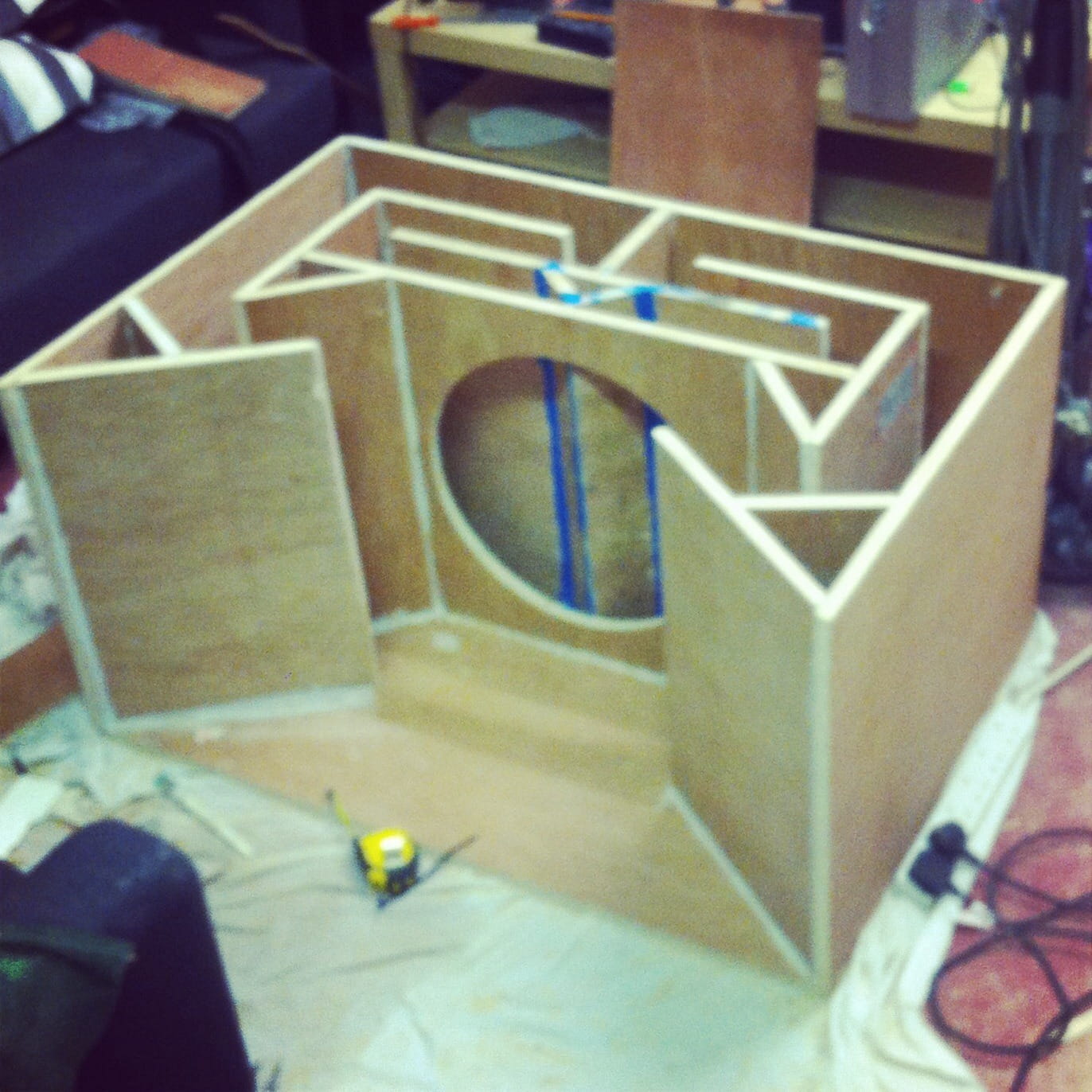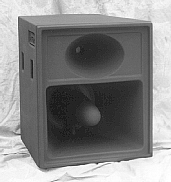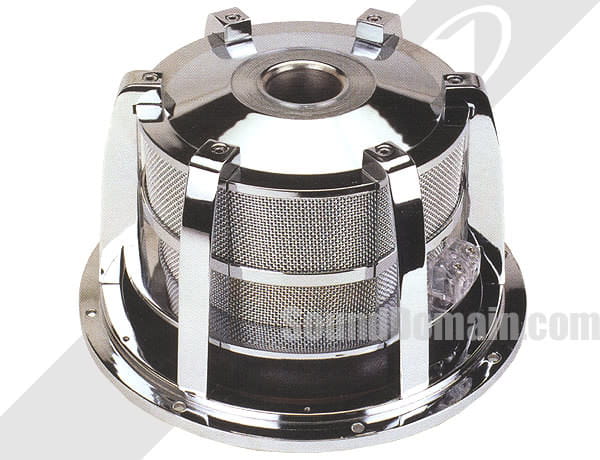- Posts: 255
- Thank you received: 4
Amplifiers...
- dnb123
-
 Topic Author
Topic Author
- Offline
- Elite Member
-

Less
More
11 years 5 months ago #22019
by dnb123
Amplifiers... was created by dnb123
So I get the basic concept of them, but I would like to know how they work. If someone could start with basics I'd appreciate it  also I'm sure lots of people on here would want to know as well
also I'm sure lots of people on here would want to know as well
Please Log in or Create an account to join the conversation.
- mini-mad
-

- Offline
- Elite Member
-

Less
More
- Posts: 195
- Thank you received: 17
11 years 5 months ago #22021
by mini-mad
Replied by mini-mad on topic Amplifiers...
they are basically a voltage multiplier. you stick 1volt in and if the gain is lets say 30 you will get 30v out (give or take)
......thats kinda as basic as i can make it

......thats kinda as basic as i can make it
Please Log in or Create an account to join the conversation.
- dnb123
-
 Topic Author
Topic Author
- Offline
- Elite Member
-

Less
More
- Posts: 255
- Thank you received: 4
11 years 5 months ago #22023
by dnb123
Replied by dnb123 on topic Re:Amplifiers...
Okay, so I get that, and I'm guessing it does it using transformers? Also how does the amp convert voltage into accoustical energy in the drivers? Is that the xo's job?
Please Log in or Create an account to join the conversation.
- mini-mad
-

- Offline
- Elite Member
-

Less
More
- Posts: 195
- Thank you received: 17
11 years 5 months ago #22024
by mini-mad
Replied by mini-mad on topic Re:Amplifiers...
old valve amps used transformers but modern amps use transistors. some cheap amps use "all in one" chips.
look up single transistor amps and you'll get a better understanding.... now, understanding how a speaker works is alot simplilar physics. alot of this can be found with a little help from google and for me to explain would take alot of writing.
im not trying to be unhelpful im trying to stear you in the rite direction....
look up single transistor amps and you'll get a better understanding.... now, understanding how a speaker works is alot simplilar physics. alot of this can be found with a little help from google and for me to explain would take alot of writing.
im not trying to be unhelpful im trying to stear you in the rite direction....
Please Log in or Create an account to join the conversation.
- dnb123
-
 Topic Author
Topic Author
- Offline
- Elite Member
-

Less
More
- Posts: 255
- Thank you received: 4
11 years 5 months ago #22025
by dnb123
Replied by dnb123 on topic Re:Amplifiers...
Yeah that's cool, thanks I'll check that all out
Please Log in or Create an account to join the conversation.
- conanski
-

- Offline
- New Member
-

Less
More
- Posts: 3
- Thank you received: 0
11 years 5 months ago - 11 years 5 months ago #22044
by conanski
Replied by conanski on topic Amplifiers...
An audio system is basically just one long chain of voltage amplifiers.. each one boosting the signal a little bit before sending it to the next amp. This starts right at the source media be that a vinyl turntable, a CD player, or a laptop, the signal read from the media is on the order of mili volts or even micro volts, it gets boosted by a few stages inside the player, then it goes into your preamp/mixer where it's boosted to the 1/2v to 1v range, and then it goes to the power amp where it's boosted to 50v or 100v or more through multiple stages with the last stage being a little different. The output transistors are larger than all the others because they can also supply large quantities of current, and when you combine large current with large voltage you get large power.
A speaker is a pretty simple device in comparison, it's a basic electric motor but instead of producing shaft rotation like you get with an electric drill it produces linear motion. Music is an AC signal just like household power the only difference is it contains a full spectrum of frequencies, and when you apply that to a speaker the positive voltage swing of the signal produces a magnetic force that opposes the magnetic force of the permanent magnet mounted around the voice coil and that pushes the speaker cone out. The magnetic force produced in the coil reverses when the negative portion of the audio signal occurs and that pulls the speaker cone back in, and that back an forth movement or vibration produces pressure waves in air that your ear interprets as sound. Now a speaker is a very inefficient device.. on the order of about 1/2% to maybe 2% or 3% depending upon the design, so most of the power generated by the amplifier just goes to heating the speakers not into sound production, so it takes a lot of power to generate loud sounds. That is mainly because air isn't very dense and that is why large horn loaded speakers generally get louder than smaller designs.. they better couple the driver to air and are therefore more efficient.
A speaker is a pretty simple device in comparison, it's a basic electric motor but instead of producing shaft rotation like you get with an electric drill it produces linear motion. Music is an AC signal just like household power the only difference is it contains a full spectrum of frequencies, and when you apply that to a speaker the positive voltage swing of the signal produces a magnetic force that opposes the magnetic force of the permanent magnet mounted around the voice coil and that pushes the speaker cone out. The magnetic force produced in the coil reverses when the negative portion of the audio signal occurs and that pulls the speaker cone back in, and that back an forth movement or vibration produces pressure waves in air that your ear interprets as sound. Now a speaker is a very inefficient device.. on the order of about 1/2% to maybe 2% or 3% depending upon the design, so most of the power generated by the amplifier just goes to heating the speakers not into sound production, so it takes a lot of power to generate loud sounds. That is mainly because air isn't very dense and that is why large horn loaded speakers generally get louder than smaller designs.. they better couple the driver to air and are therefore more efficient.
Last edit: 11 years 5 months ago by conanski.
Please Log in or Create an account to join the conversation.
Time to create page: 0.305 seconds